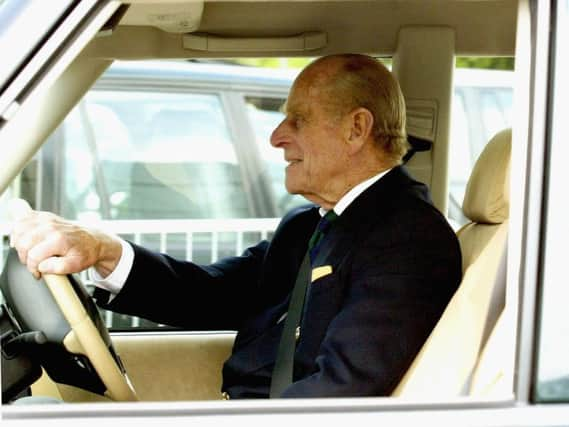Column: Duke of Edinburgh's road accident raises serious questions


Unfortunately, we then realised the country is just as split on whether older drivers should be allowed on the road – and the revelation that the Prince and Queen seem to ignore seatbelt legislation just reinforced how the elite and establishment seem to operate under a different set of rules to us.
‘Amusing’ headlines about older drivers getting confused about sat navs or driving the wrong way down motorways are quite common, but people also get hurt, as highlighted by the Prince’s accident.
Advertisement
Hide AdAdvertisement
Hide AdWith an ageing population there are now 5.3m drivers aged over 70 – and more than 250 still driving at 100.
Many are perfectly fit and healthy or know their limitations and self-regulate by refraining from driving at night or on faster roads, but whether all are responsible and give up driving when they should is debatable.
Possibly this is one of those things in life where we are a bit hypocritical and what we feel is okay for us or our flesh and blood shouldn’t be allowed when it is someone else.
But families can be influential, and my family had concerns about my dad’s driving in his late 70s.
Advertisement
Hide AdAdvertisement
Hide AdIs James Bond the man to save us from Brexit?We joked that he once got stopped for driving so slowly that the police thought he must be drunk, but also started to worry about having our kids in his car.
By the end we could have taken the classic shot of the old man peering over the steering wheel, but a deterioration in his eyesight meant he did the right thing voluntarily.
Statistics give a mixed picture as to the safety of older drivers.
They have far fewer accidents than youngsters but are involved in a higher proportion of accidents where someone is killed or seriously injured relative to the number of miles they drive. So, understandably, insurers are wary of older drivers, but cover is far more available than when I started in the insurance industry in the late 1970s, when once you got to 70 you were ‘stuck’ with the same insurer.
Advertisement
Hide AdAdvertisement
Hide AdAt 70, a three-year licence will usually be granted, but the system relies on self-disclosure of medical conditions and some call for stricter controls, particularly for the very elderly.
The flip side is that the car is a lifeline for many who cannot rely on public transport, particularly in rural areas.
With 80 being the new 70 a solution may be to increase the age for reapplying for a licence to 75 or 80 and then apply a more rigorous, independent testing regime for those that wish to continue driving.
It could even be 90 by the time I get there, although with my kids already accusing me of having senior moments, they would probably suggest a driverless car.